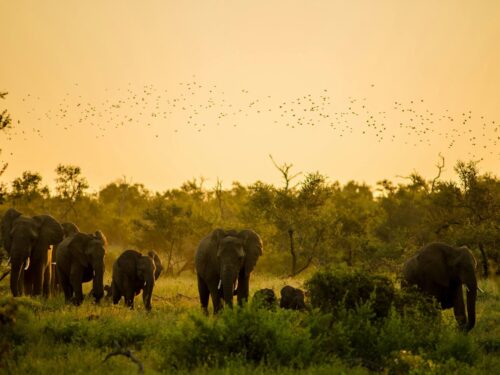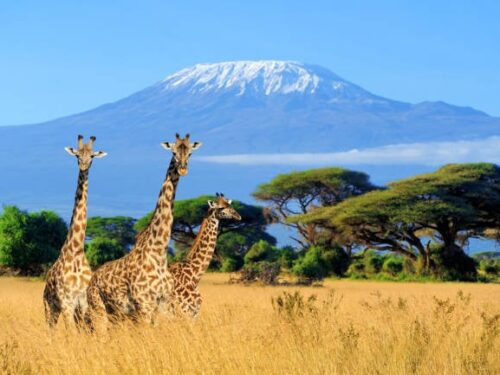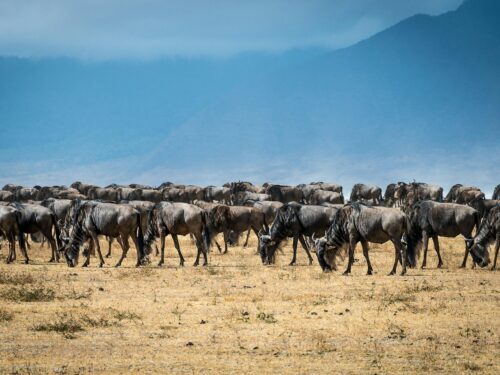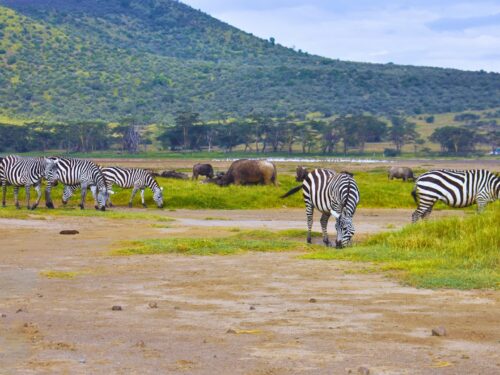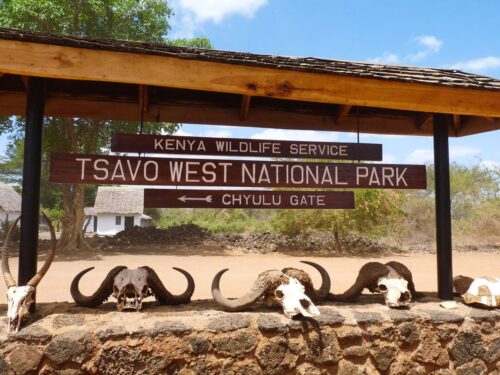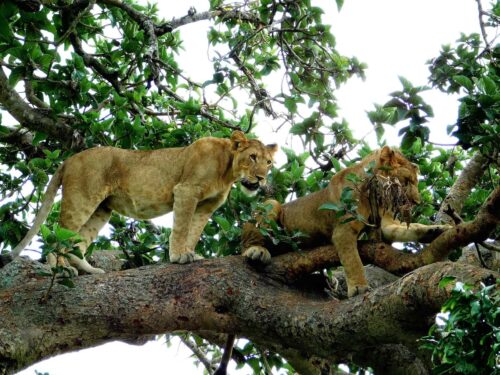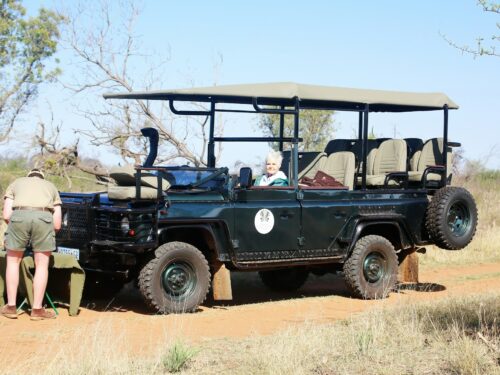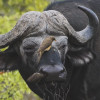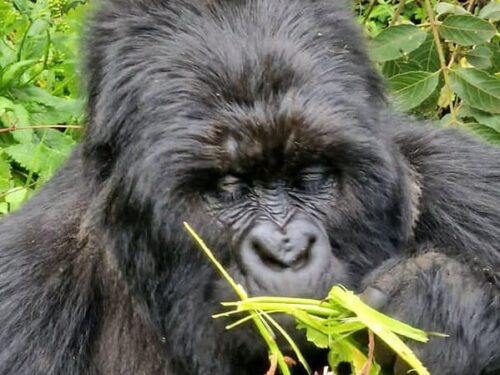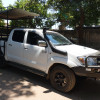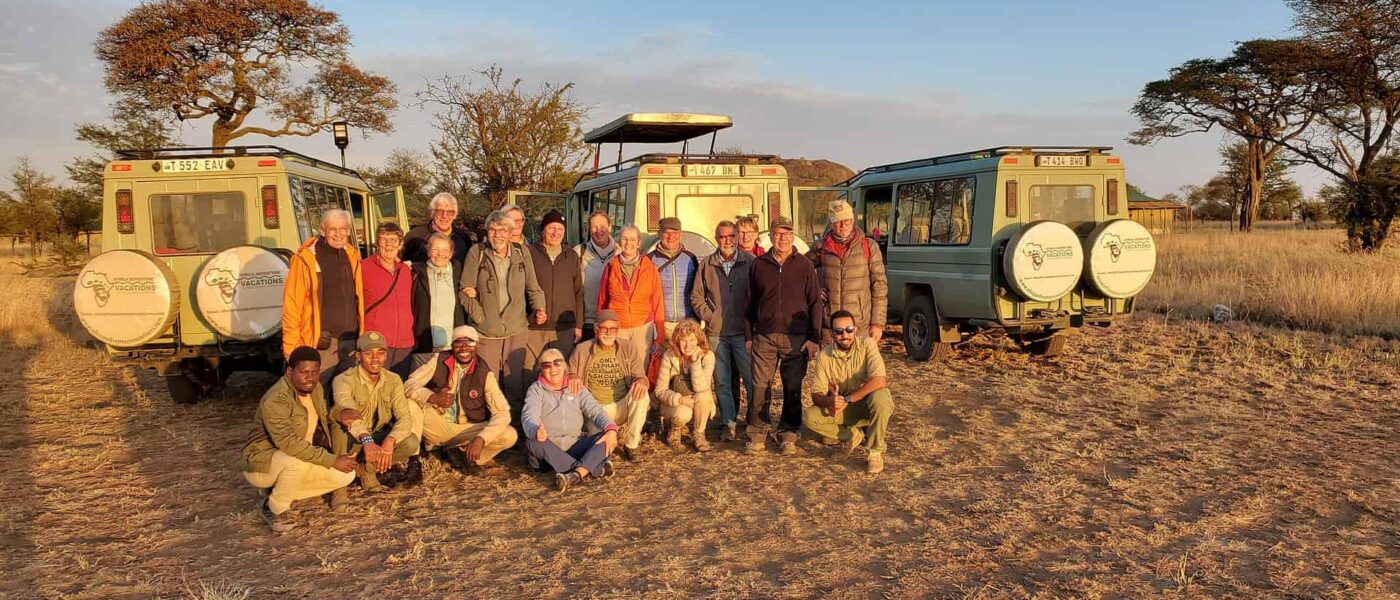

Things to do in Queen Elizabeth National Park include various activities that tourists can engage in when they visit the park.
Queen Elizabeth National Park is one of the remarkable Savannah parks in Uganda. It features a diverse range of ecosystems and magnificent scenery. The protected area is located on the western side of Uganda in Kasese District and covers an area of 1,978 sq. km.
In 1952, this area was gazetted as Kazinga National Park to protect the different wildlife species residing there. In 1955, after a visit by Queen Elizabeth II of England, Kazinga National Park was renamed Queen Elizabeth National Park. Tourists can visit the park every day of the year to participate in various activities that allow them to encounter the park’s attractions.
Here’s an overview of things to do in Queen Elizabeth National Park:
Things To Do in Queen Elizabeth National Park
If you’re looking to fill up your itinerary when visiting Queen Elizabeth National Park, here’s a list of activities to do in the park.
Related read: Things To Do on a Safari in Uganda
Go on a Game Drive
Queen Elizabeth National Park is one of the most popular national parks for safaris in Uganda. The park protects 95 mammals, including 20 carnivores, and 600 bird species living in the open grassland and savannah. A game drive is a unique adventure that entails viewing different animals in safari vehicles around the park.
Tourists have the opportunity to choose the type of game drive they want while in the park. There are morning, afternoon, and night game drives. The morning game drives start early in the morning to give tourists a chance to see nocturnal animals before going back to their hideout places. Afternoon game drives find animals grazing and others resting.
The day game drives in Queen Elizabeth National Park give tourists an opportunity to see animals such as elephants, buffaloes, giraffes, warthogs, lions, spotted hyenas, Nile crocodiles, Uganda kobs, waterbucks, olive baboons, monkeys, side-stripped jackals, hippos, topis, and sitatungas to mention but a few.
The night game drives are exciting as tourists get to see nocturnal animals hunting during the dark hours. Night game drives start at around 7 p.m. and go on for more than 3 hours in specific areas of the park where nocturnal animals are always spotted. Nocturnals in Queen Elizabeth National Park include leopards, lions, serval cats, bush babies, spotted hyenas, banded mongooses, and giraffes.

Chimpanzee Trekking
Queen Elizabeth National Park is one of the few places in Uganda that harbors chimpanzees. Kyambura gorge, found right inside the park, is a place where chimpanzees can be visited in their natural habitat. One chimpanzee family has been habituated in this area, and a maximum of 8 people can trek them in the morning and afternoon.
Chimpanzee trekking in Queen Elizabeth National Park will enable tourists to get close to endangered species of primates in their natural habitat. The activities involve going deep down the gorge to search for where these chimps could be. Once spotted, trekkers are given one hour to be around them, and this gives them an opportunity to watch them carry out day-to-day activities.
Related read: Golden Monkey and Chimpanzee Trekking in Uganda
Bird Watching
Queen Elizabeth National Park has over 600 bird species, making it a national park in Uganda with the highest number of birds. Birds of this park can be spotted in areas like Katwe, Kazinga channel, Katunguru bridge, Lake Kikorongo, Kasenyi, Mweya peninsula, Maramagambo, and Ishasha sector, among others.
On a bird-watching safari in Queen Elizabeth National Park so many bird species can be spotted, for example, black-headed batis, verreaux eagle owl, green-winged pytilia, African mourning dove, rufous napped lark, black coucal, marital eagle, Senegal lapwing, red-billed teal, spur-winged goose, scaly francolin, blue-billed teal, Egyptian goose, handsome francolin, little grebe, emerald spotted wood dove, greater flamingo.
African crake, red-knobbed coot, grey crowned crane, black-billed turaco, eastern plantain eater, black-billed bustard, little egret, purple heron, saddle-billed stork, long-tailed cormorant, hadada ibis, intermediate egret, black-headed lapwing, lesser jacana, common ringer plover, white-headed barbet, and African broadbill to mention but a few.
Related read: Best Places for Bird Watching in Uganda

Boat Cruise on Kazinga Channel
A boat cruise on the Kazinga channel is an activity tourists can do to spot water birders, mammals, and primates or get to know more information about the channel, which joins Lake Edward to Lake George. There are morning and afternoon boat cruises on the Kazinga channel happening for over two hours.
A boat cruise on the Kazinga channel will allow tourists to meet some of the park animals like elephants, buffaloes, hippos, and crocodiles. Birders will be able to see bird species such as the African fish eagle, yellow-billed stork, white-tailed lark, African skimmer, martial eagle, and African finfoot, to mention but a few.
Search for Tree-Climbing Lions
Uganda is home to tree-climbing lions, which live only in Queen Elizabeth National Park. The Ishasha sector of Queen Elizabeth National Park is the only place where tourists can see tree-climbing lions within the park. While on a safari to this park, there is an opportunity to see tree-climbing lions while carrying out a game drive in the southern sector of Ishasha.
In the Ishasha sector, a pride of lions can be spotted on tree branches, which is rare in other national parks. It’s said that these lions climb trees to avoid bites from pests and insects, escape heat from the ground, and monitor their territories for prey. Because of their ability to climb, lions attract more and more tourists each year to the Ishasha sector of Queen Elizabeth National Park.

Banded Mongoose Trekking
In the Mweya peninsula, Queen Elizabeth National Park is a place where tourists can see banded mongooses. Over 400 banded mongooses live within the area and about 12 groups can be trekked. Tourists who love banded mongoose can participate in the trekking activity which will allow them to watch them do daily activities, monitor their behaviors, and much more.
Nature Walks
Nature walks in Queen Elizabeth National Park are a perfect way to discover hidden treasures that cannot be seen on game drives or other park activities. Queen Elizabeth nature walks can be done in Maramagambo forest, Mweya peninsula, Ishasha sector, Kyambura gorge, and Kasenyi, among other places.
During nature walks in Queen Elizabeth National Park, tourists can see different wild animals, birds, vegetation, water sources, and surrounding areas. A walk through Kyambura gorge gives tourists chances of seeing chimpanzees, though they can’t be around them. Ishasha sector gives tourists an opportunity to see tree-climbing lions.
Africa Adventure Vacations
This is your place for incredible African safaris that you’ll never forget.
They’re a top-notch safari company based in Uganda that offers amazing tours. Whether you’re into wildlife, culture, birding, luxury gorilla safaris, or Kilimanjaro trekking, they’ve got you covered.
They can tailor all of their tours to fit your travel preferences, budget, and schedule.
Contact Africa Adventure Vacations using the form below!
Plan Your Trip to the Queen Elizabeth National Park
Here are a few important details to consider when planning your safari in Queen Elizabeth National Park.
Related read: How Much Does a Uganda Safari Cost?
When is the Best Time To Visit Queen Elizabeth National Park?
Queen Elizabeth National Park is best visited during the driest months of the year, which occur from June to September and December to February. These months are good for visiting the park because they are characterized by little rainfall and plenty of sunshine. The game tracks where game drives are conducted are dry and easier to pass through, and vegetation is short with good views of most of the park’s attractions.
Tourists can still visit Queen Elizabeth National Park during the rainy season from March to May and October to November, for it is always open. Travelers should know that these months have plenty of rainfall and little sunshine. The vegetation is tall during that time, which leads to unclear views of some of the park attractions, and game tracks tend to be muddy and slippery, limiting tourists’ access to some of the park areas.
Getting to Queen Elizabeth National Park
Air and road transport can lead tourists to Queen Elizabeth National Park in a single day. Air transport is quick but costly, while road transport is affordable to all travelers. By air transport, airline companies such as Aerolink Uganda and Bar Aviation Uganda have flights to Mweya airstrip which is located inside the park.
Travelers who use road transport can enjoy beautiful views of different attractions along the way. By road, travelers from Entebbe drive through Kampala, Lyantonde, Mbarara, Bushenyi, and then Kasese, where the park is located. It takes 7 to 8 hours to get to Queen Elizabeth National Park, and the time taken depends on the number of stopovers as well as the speed of the driver.
Get in touch with Africa Adventure Vacations to book your Queen Elizabeth National Park experience:

